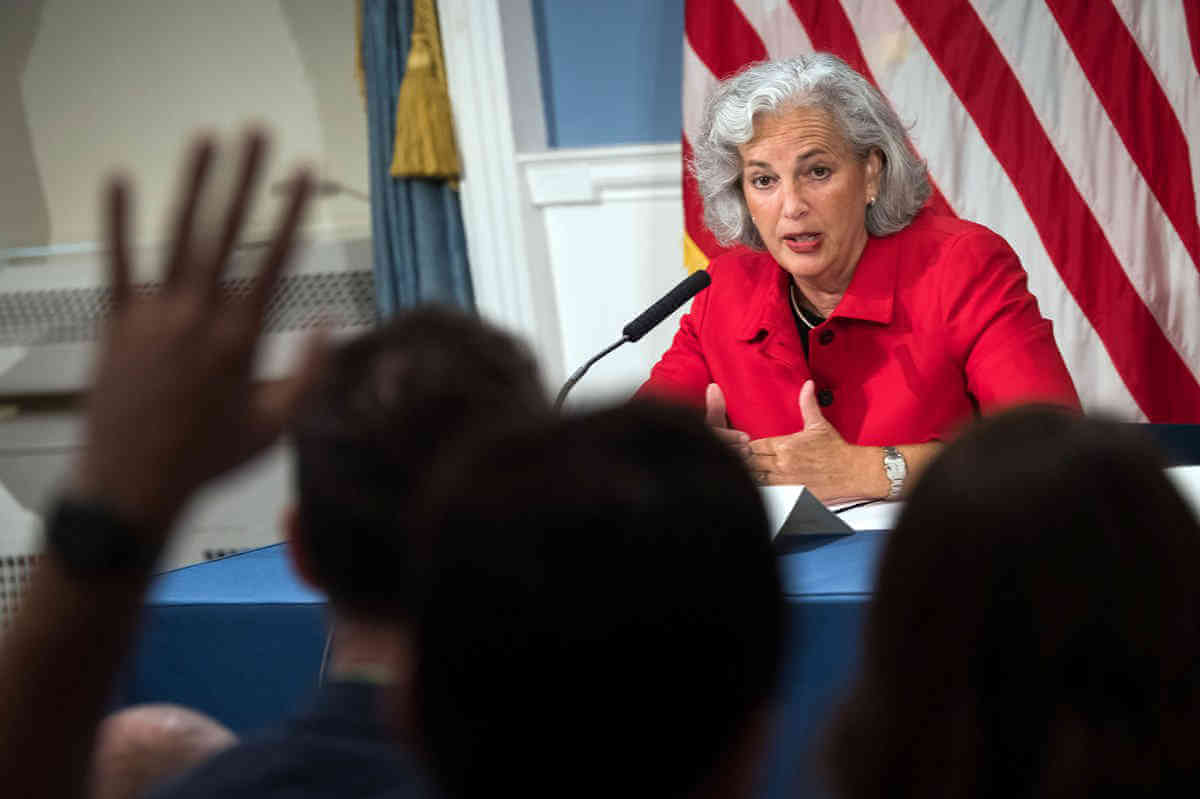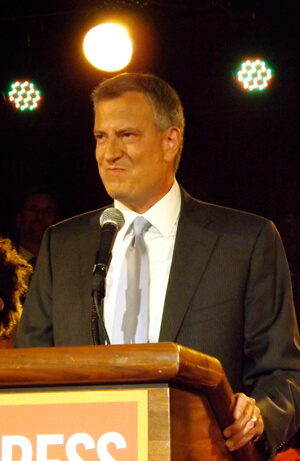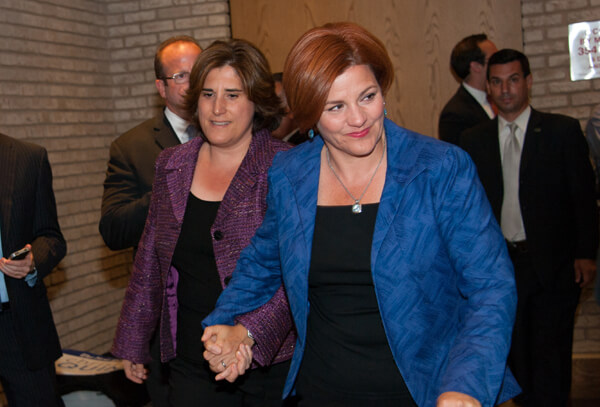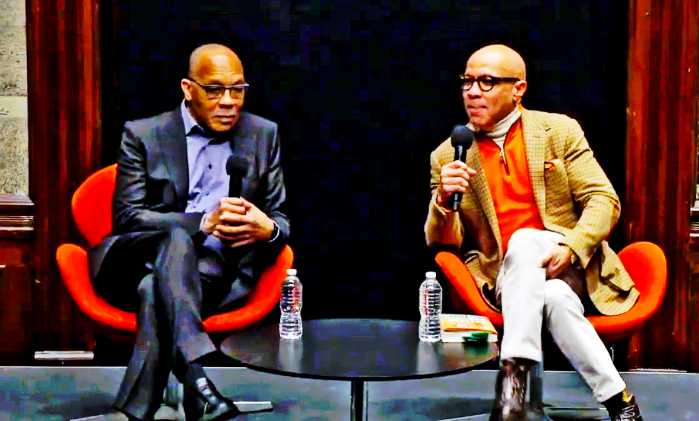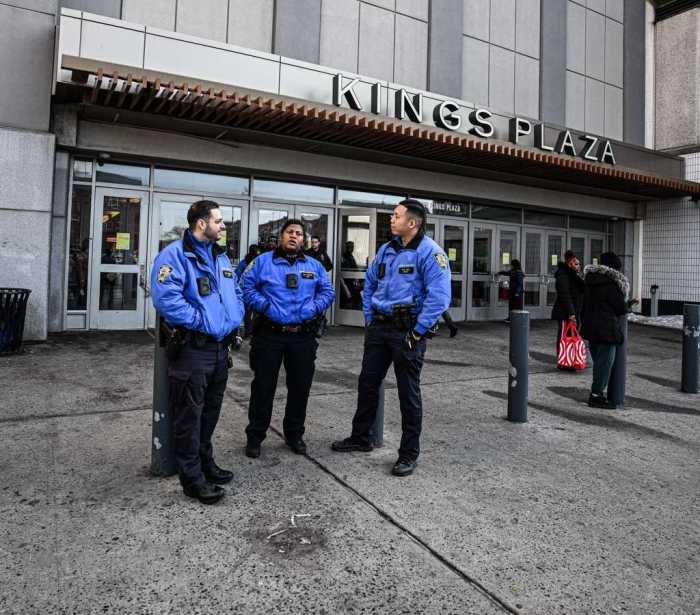New York City’s Office for the Prevention of Hate Crimes officially opened its doors late last month under the stewardship of a veteran advocate on the issue, marking a new beginning in the city’s fight to reverse the spike in bias-related crimes over the past several years.
Established within the Office of the Mayor, the new unit launched roughly seven months after the City Council adopted legislation aimed at forging a more proactive prevention strategy toward eradicating hate crimes.
Deborah Lauter, a former executive at the Anti-Defamation League (ADL), was tapped to lead the new office and is implementing what she describes as a “holistic” approach toward bias-related crimes that have affected Jewish and LGBTQ New Yorkers at disproportionately high rates.
Speaking to Gay City News during her fourth day on the job, Lauter acknowledged that the office is in its infancy — it is not yet fully staffed — but once it is more fleshed out, she said, the team will look to establish relationships with the range of city agencies that play roles in taking on hate crimes in the five boroughs.
“You have the Commission on Human Rights, the Mayor’s Office of Immigrant Affairs, the Community Affairs Unit, the Department of Health and Mental Hygiene… all these agencies are doing work completely in silos but the strategy of this office is to bring them together,” said Lauter, who has lived in the city since 2006.
Lauter envisions those partnerships being collaborative, with a focus on brainstorming and sharing best practices on how to stop hate crimes before they happen. She also wants outside parties — including community members, advocates, and victims groups — involved in the discussions.
The prevention-focused team under Lauter will balance its efforts with those of the NYPD’s Hate Crimes Task Force, which investigates bias incidents in the city and is focused more on reacting to hate crimes than preventing them. Lauter heaped praise on that NYPD unit, saying the city is “fortunate to have such an excellent Hate Crimes Task Force.”
“I want to explore what their community relations challenges have been and see if we can help bridge some of those relationships,” she said.
Lauter’s team will have their work cut out for them. The city saw 93 hate crime arrests through the first two quarters of this year, outpacing the numbers seen through the first two quarters in 2017 (87) and 2018 (63), according to data provided by the mayor’s office. Of the 405 total hate crime arrests citywide between 2017 and 2019, 134 have been classified as anti-Jewish and 105 have been anti-LGBTQ. Respectively, those cases make up 33 percent and 26 percent of all reported hate crimes, both far outpacing other motivating factors in bias crimes. Men between the ages of 26 and 35 have carried out the vast majority of hate crimes in the city.
There have been countless examples this year of Jewish New Yorkers facing violent assaults captured on surveillance video footage, while homophobic and transphobic attacks have also been evident: A pair of trans women were attacked in Queens in June and a man set fire to Rainbow Flags multiple times at a gay bar in Harlem in May and July. Lauter suggested that queer folks might even be targeted more than the numbers indicate, saying, “Hate crimes are underreported, particularly in the LGBT community.”
Lauter believes her nearly two decades of work experience combating hate crimes groomed her for the opportunities her new office provides. Having grown up in Northern California, Lauter spent more than a decade in the ADL’s Atlanta office, where she served as “the face of the ADL responding to discrimination in our communities and hate crimes.” The ADL then moved her to New York, where she took on the role of national civil rights director, leading a team of staff and volunteer attorneys who pushed for the passage of the federal Matthew Shepard, James Byrd Jr. Hate Crimes Prevention Act, enacted in 2009, and worked to build interfaith coalitions geared toward stopping discrimination against Muslim communities.
She also served as a senior vice president for policy and programs during her time with the ADL.
“In my career fighting hate, there is not one way to fight hate,” Lauter said. “It takes a multi-pronged approach.”
That, she said, entails more anti-bias education as well as programs that are more preventative. But how exactly the effort will take shape has yet to be determined because the office is so early in its development. While Lauter laid out a general sketch of how the office would look, she also raised a series of questions her office will examine in determining how to organize itself.
Among the questions on her mind are how to engage New Yorkers more in anti-bias education, how to use tools of community relations to complement existing law enforcement efforts, and what specific shape city prevention programs should take.
“I think the emphasis has been on reacting — that’s understandable,” Lauter added. “I would anticipate looking at examples of hate crimes that could have happened and using them to look at how the different agencies approach it.”
It is not clear how committed Mayor Bill de Blasio is to the new office. The City Council bill that created the office became law without his signature, and, according to AM New York, the office opened only after councilmembers prodded de Blasio to follow through on his promise to open its doors this summer.
At a press conference on September 3, Lauter said she had not spoken to the mayor since starting her new position.
Nonetheless, she asserted during her interview with Gay City News, the Mayor’s Office of Criminal Justice has laid “a lot of groundwork” for the office and “has been helpful in getting this office going.”
“The goal is to get a team of quality professionals — people who have experience, education in law enforcement, and community relations,” she said. “I’m just really excited about this new endeavor.”
Manhattan Councilmember Mark Levine, who was the lead sponsor on the bill in the City Council, did not immediately respond to questions about the office by press time on September 9.

